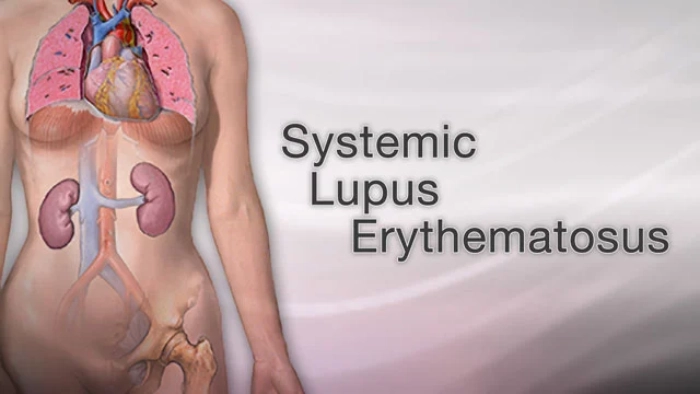Can Obesity Drugs Also be Used as Alcohol Use Disorder Drugs?
A recent collaborative study between the University of Eastern Finland and Karolinska Institutet in Sweden has uncovered that GLP-1 agonists, semaglutide and liraglutide—medications primarily used to treat obesity and type 2 diabetes—could also help reduce alcohol consumption in individuals with alcohol use disorder (AUD). The findings, published in ‘JAMA Psychiatry‘, suggest that these medications are associated with fewer hospitalizations due to alcohol-related causes, substance abuse, and other physical health issues.
The research, which analyzed Swedish registry data from over 200,000 individuals diagnosed with AUD between 2006 and 2021, tracked their use of semaglutide and liraglutide, along with hospitalizations, until the end of 2023. During this period, 4,321 participants were on semaglutide, and 2,509 were using liraglutide. Interestingly, the study found that both drugs were linked to a reduced risk of hospitalization due to alcohol-related and substance use disorders. Specifically, semaglutide was associated with a 36% reduction in hospitalization risk, while liraglutide showed a 28% reduction.
Additionally, the data revealed that these GLP-1 agonists also significantly lowered the risk of hospitalization for physical health issues, with semaglutide and liraglutide showing a 22% and 21% decrease, respectively. In comparison, naltrexone—the most effective medication currently approved for AUD—only resulted in a 14% reduction in hospitalization risk for alcohol and substance-related issues.
The researchers noted that, while GLP-1 agonists have been traditionally prescribed for obesity and diabetes, earlier studies had hinted at their potential to curb alcohol consumption. Some patients had even reported a reduced desire to drink after starting semaglutide therapy. Despite these promising results, the researchers emphasize that further randomized controlled trials are needed to confirm the efficacy of these drugs in treating alcohol use disorder.
Dr. Markku Lähteenvuo, a forensic psychiatry docent at the University of Eastern Finland, highlighted that the idea for the study emerged from patient reports of reduced alcohol intake after initiating semaglutide. These observations, also mentioned in international conferences, prompted further investigation into the drugs’ potential benefits beyond their original indications.
Commentary by YourDailyFit columnist Alice Winters:

The implications of this study are far-reaching, particularly given the growing global concern over both the obesity epidemic and the rising incidence of alcohol use disorders. While semaglutide and liraglutide have carved out their roles in managing weight and controlling blood sugar in diabetes, their emerging effects on alcohol consumption could represent a novel avenue for treating alcohol dependency, particularly when paired with current AUD therapies.
The study design, which analyzed data from over 200,000 individuals, adds a robust foundation to the claim that GLP-1 agonists might play a role in reducing alcohol consumption. However, it’s crucial to note that the study did not investigate the underlying mechanisms—such as whether these drugs affect the brain’s reward system, appetite control, or another pathway that might influence alcohol cravings. The research also refrains from addressing whether the reduced hospitalizations directly correlate with improved long-term outcomes for alcohol-dependent individuals. While the findings are promising, they do not conclusively establish that semaglutide and liraglutide can be used as standalone treatments for AUD.
Furthermore, while semaglutide’s 36% reduction in alcohol-related hospitalizations is notable, it is important to place this in context: The reduction seen with naltrexone (the current gold standard for alcohol dependency) is only 14%. This doesn’t necessarily mean semaglutide is a superior option for alcohol use disorder; the drugs work via different mechanisms, and a direct comparison of their efficacy in alcohol treatment alone is premature.
The fact that semaglutide and liraglutide appear to reduce hospitalizations due to physical illness adds an interesting layer to their potential use for individuals battling both AUD and comorbid conditions like obesity or diabetes. However, their impact on physical health, particularly when coupled with alcohol dependency, remains an area that warrants more in-depth exploration.
The authors’ acknowledgment of the need for randomized controlled trials (RCTs) before making definitive claims is a prudent reminder. Observational data, while valuable, cannot replace the rigor and control of clinical trials. The therapeutic window for GLP-1 agonists in alcohol use disorder might exist, but until further trials are conducted, it’s essential that these drugs be regarded primarily in the context of their approved indications for diabetes and weight loss.
In conclusion, while the study shines a light on an exciting potential overlap in the treatment of obesity, diabetes, and alcohol use disorder, it remains crucial for healthcare professionals and patients to approach these findings with caution. The hypothesis that GLP-1 agonists could be part of a broader treatment regimen for AUD is promising, but further trials will be necessary to substantiate these initial findings and to ensure that any off-label use is both safe and effective.



